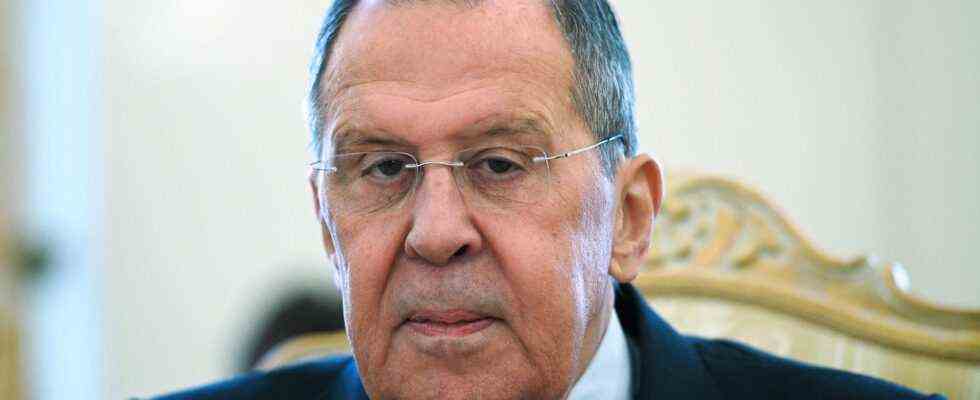Because they are also said to have worked for the secret service, NATO withdrew their accreditation from Russian diplomats at the beginning of October. Moscow was angry – and is now reacting with a clear step.
In the dispute over revoked accreditations for Russian diplomats, Moscow will stop the work of its permanent representation to NATO in Brussels from the beginning of November. The Russian Foreign Ministry announced on Monday. The work of the NATO information office and that of the NATO military mission in Moscow will also be terminated accordingly. “NATO is neither interested in an equal dialogue nor in cooperation,” said Russia’s Foreign Minister Sergei Lavrov, according to the Interfax agency.
Federal Foreign Minister Heiko Maas rejected the allegations on the sidelines of an EU meeting in Luxembourg and recalled the proposals that had been on the table for months to convene a new meeting of the NATO-Russia Council. Moscow’s decision will extend the ice age further, said the SPD politician. “That will continue to put a serious strain on the relationship.”
The Western military alliance was apparently taken by surprise by Russia’s decision. “We have taken note of Minister Lavrov’s statements to the media, but have not received any official communication ourselves on the issues raised,” said NATO spokeswoman Oana Lungescu. I regret these steps. Lavrov had previously stated that the alliance had been informed of the Russian steps.
Russian spies?
A good ten days ago, NATO withdrew their accreditations from eight members of the Russian mission. It was also decided to reduce the maximum size of the Russian mission to ten employees. The reason: The diplomats are said to have also worked for the secret service. Under the given conditions, the representation in Brussels could not continue to work, it was said from Moscow.
In urgent cases, NATO could turn to the Russian ambassador in Belgium, said Russia’s foreign ministry. In return, the ambassador of a NATO member state in Moscow could be determined who would be the contact person for the Russian side in the future. Until recently, three representatives of the international military staff were in Moscow for NATO. In addition, there are a small number of civilian employees in the military liaison mission and in the information office.
NATO had already issued sanctions against the Russian representation in Brussels in 2018: in response to the nerve agent attack in Salisbury, UK, seven Russian employees were expelled and the maximum size of the Russian delegation was reduced from 30 to 20 people.
After the latest measures, NATO Secretary General Jens Stoltenberg left it open whether the Russian officials were engaged in classic espionage or were simply not declared as secret service employees. The decision to withdraw accreditation is based on the intelligence service’s own findings, and they do not comment on such, it said. Even then, there was clear criticism from the Kremlin.

